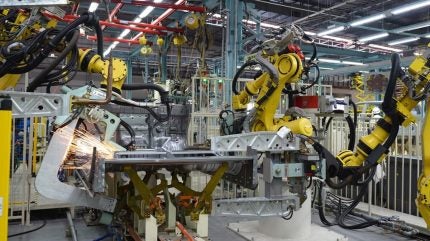
Japanese company Nissan Motor has reiterated its commitment to producing vehicles in Thailand, according to a Thai government official, allaying local concerns following the automaker’s recently announced plans to cut its global production capacity and restructure its operations to cut costs.
Narit Therdsteerasukdi, the secretary-general of the Thai Board of Investment, met with Nissan’s Thai executives this week to discuss the Japanese automaker’s plans in the country. At the meeting, Nissan executives confirmed that Thailand remains one of its key markets in the ASEAN region and will remain the main regional production base.
Nissan’s facilities in Thailand, including two vehicle assembly plants, are located at a single site in Samut Prakan province. They are the automaker’s only wholly-owned manufacturing operations in the region, after the company closed its plants in Indonesia several years ago as part of an earlier cost-cutting programme. Nissan’s regional headquarters is also located in Thailand.
Nissan plans to concentrate its Thai vehicle production at one plant in Samut Prakan, at the newest of the two – built in 2014, as part of what it described as “line integration” to streamline its operations.
The older plant, originally built in 1975, will be repurposed to produce body parts, including stampings and assemblies, and eventually EV parts including battery pack assembly. According to Mr Narit, Nissan plans to begin this restructuring process in the second quarter of 2025.
Industry data shows that Nissan’s vehicle production in Thailand last year plunged by 34% to around 67,300 units, comprising the Navara pickup truck, the Kicks crossover vehicle and the Almera sedan. The company plans to introduce new models at the plant in the next two years, including electric and hybrid vehicle models, and will apply for government incentives for the new investment.
Mr Narit said in a statement: “The Thai government is dedicated to supporting the automotive industry, including Japanese companies that have invested in Thailand for over 50 years, to maintain their competitiveness and to transition to electric vehicles. The EV Board and BOI have introduced numerous measures to support the production of electric vehicles, including BEVs, PHEVs, HEVs, and MHEVs, with the aim of making Thailand a leading production and export hub for next-generation vehicles.”



